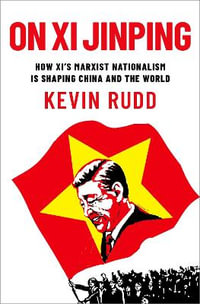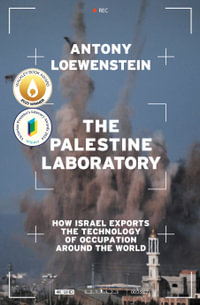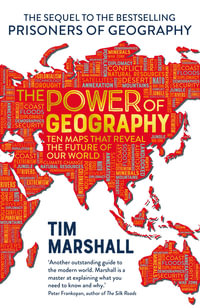Peoples of the Earth employs a comparative history of ethnonationalism to examine Indian activism and its challenges to the political, social and economic status quo in the countries of Central and South America. It explores the intersect between problems of democratic empowerment and security-including the appearance of radical Islam among Indians in two important countries-arising from the re-emergence of dormant forms of ethnic militancy and unprecedented internal challenges to nation-states. The institutions and practices of Indian self-government in the United States and Canada are examined as a means of comparison with contemporary phenomena in Central and South America, suggesting frameworks for the successful democratic incorporation of the region's most disenfranchised peoples. European models emerging from "intermestic" dilemmas are considered, as are those involving the Inuit people (or Eskimos) in the Canadian far north, as policymakers there 'think outside the box' in ways that include more robust roles for both sub-national and international bodies. Finally, the work challenges policymakers to broaden the debate about how to approach the issues of political and economic empowerment and regional security concerning Native peoples, to include consideration of new ways of protecting both land rights and the environment, thus avoiding a zero-sum solution between the region's 40 million Indians and the rest of its peoples. Peoples of the Earth has the potential to become a pioneer study addressing ethnic activism, characterized by multiple, small groups pressing for state recognition and democratic participation, while also promoting a defense of the environment and natural resources. Part of its attractiveness is the likelihood that the work will lead to further investigations and will become an authoritative point of departure for the fertile area of ethnonationalism studies in Latin America. Each country chapter provides a succinct but substantial presentation of the basic issues and challenges facing the Native peoples of the country. Overall, the book has an excellent mix of historical and contemporary analysis.
Industry Reviews
Scholars in the field of comparative ethnic nationalism have long been frustrated by the nearly total absence of information concerning the indigenous peoples of Latin America. They have been treated as outside of the sociopolitical realm, slighted by their governments and intellectuals, as well as by writers from outside Latin America. Political mobilization in recent decades among the indigenes of the Andean Cordillera from Mexico to Bolivia has belatedly forced their governments and the outside world to acknowledge them as a consequential force, but insightful, comparative analysis of these movements and their likely outcomes is needed. Martin Edwin Andersen's manuscript is a giant step in meeting that need. -- Walker Connor, Trinity College, Hartford
Peoples of the Earth addresses the inconvenient question of what Indian/indigenous political empowerment means for Latin American democracy and security. Andersen explores the topics of mobilization, ideology, and ethnic identity in an innovative manner to examine the impact of indigenous mobilization on the nation state. This is a unique and honest discussion of a topic that is often obscured by ideology and foreign policy goals. The book is highly recommended for anyone interested in indigenous mobilization, the deepening of democratic inclusion, and regional stability issues. -- Dr. Jennifer S. Holmes, associate professor of Political Economy and Political Science at the University of Texas at Dallas
There are few things as controversial and sensitive as the indigenous issue in Latin America, and even fewer as well studied as Martin Edwin Andersen does in Peoples of the Earth. For anyone who wishes to understand the issue, with sympathy or skepticism, this is a must read. -- Jorge G. Castaneda, author of Utopia Unarmed
Peoples of the Earth: Ethnonationalism, Democracy, and the Indigenous Challenge in 'Latin' America by Martin Edwin Andersen presents a fascinating and comprehensive perspective on Latin American history focusing on the lesser told but nonetheless important story of indigenous rights across the hemisphere...The narrative flows naturally and smoothly, and with a rapid pace and energetic style making the manuscript a delight to read, blending the best of academic analysis with a refreshing journalistic pacing....This work deserves to be widely read, from the classroom to the forward operating base, and to remain in print for many years to come, as it fills a need in the field for such a holistic and comprehensive approach to state-tribe relations, in the Americas and around the world. * Thesourdough.Com, March, 2010 *
Martin Edwin Andersen presents a fascinating and comprehensive perspective on Latin American history focusing on the lesser told but nonetheless important story of indigenous rights across the Western Hemisphere. . . . The author's historical expertise, intimate regional awareness, and comprehensive knowledge of the literature are evident throughout. The documentation of the sources used is also impressive, with fully thirty pages of bibliographic references chock-full of important sources . . . providing researchers with a tremendous resource. Over thirty-five pages of highly detailed endnotes are a further reflection of the depth of scholarship and the meticulousness of the author's research. . . . It deserves to be widely read, from the classroom to the forward operating base, filling a need in the field for such a holistic and comprehensive approach to state-tribal relations-in the Americas, and beyond. * The Culture and Conflict Review, April 2010 *
With the end of the Cold War and the rise of new communication technologies conditions exist for creating "more perfect" democratic political systems in nations where significant populations have had their voices denied or limited for decades. Individuals wishing to understand that potential for the native peoples of the Western Hemisphere would do well to read Peoples of the Earth, a volume which lays out the main issues which will be confronted by those wishing to give greater political voice to the indigenous populations of the Americas in the 21st century. -- Louis W. Goodman, Emeritus Dean of the School of International Service at American University
Peoples of the Earth is about the indigenous peoples of the Western Hemisphere-what is left of them. Focusing on the rise of Native nationalism in the Americas, the book is provocative from historical and ideological perspectives. The rise of the struggle for autonomy is based on globalization and the encroachment of outside forces on indigenous lands. Aside from political autonomy, the cry is for preservation of Indian cultures. The nature of the struggle depends on the nation-state that the particular indigenous nation finds itself within. Mexico leads in the number of Native people with 12 million natives, 14.3 percent of the population. (The CIA World Fact Book lists 30 percent of Mexicans as Amerindian). Only in Bolivia have Native Americans gained a semblance of power, with the rise of Evo Morales as president....Summing Up: Recommended. All levels/libraries. * CHOICE *
Peoples of the Earth is probably the most honest and comprehensive examination and analysis available of the dozen of indigenous social movements that have erupted in the Western hemisphere since the end of the Cold War....A well-written, encyclopedic account of the indigenous awakening in the Western Hemisphere. The book is unique in that it represents the highest quality in social science, yet still provides all of the information needed by analysts to see the wide range of security threats posed by indigenous activism and state responses in the Western Hemisphere. It is well worth reading and could lead to the formulation of proactive security strategies that neutralize the explosive potential of this post-Cold War phenomenon. -- Dr. Patricia Olney, Associate Professor of Political Science at Southern Connecticut State University and specializes in Latin American security iss
Martin Edwin Andersen's text is a much needed commentary and examination of comparative ethnic nationalism pertaining to the indigenous peoples of Latin America. Often treated as outside of the sociopolitical realm, this population's political mobilization in recent decades has forced governments and intellectuals alike to acknowledge its consequential force as a political power. * Johns Hopkins University Sais Alumni News No. 50 *
Peoples of the Earth responds to the need for a text that opens a new dimension of Latin American area studies. The work is highly original, insightful, and presents an even handed representation of the issues. The highest praise that can be given to any academic writing is that it stimulates thought, discussion and further research. Anderson has done just that with Peoples of the Earth....This book is the perfect counterbalance to the traditionalist Latin America area specialist and its insights should be part of any curriculum dealing with the region. * Security and Defense Studies Review *
Peoples of the Earth is a rich and well documented work that not only covers several dimensions of the problem of incorporation of indigenous peoples, but also follows a clear agenda that aims at intervention and influencing policy design. It is therefore a book that should be read as both an academic piece of work and, perhaps more importantly, as a contribution to the political analysis for the accomplishment of indigenous demands and needs. * Journal Of Multilingual & Multicultural Development *
Martin Edwin Anderson's Peoples of the Earth adds to the proliferation of studies related to contemporary processes of politicization of ethnicity in Latin America. * Latin American and Caribbean Ethnic Studies *

























